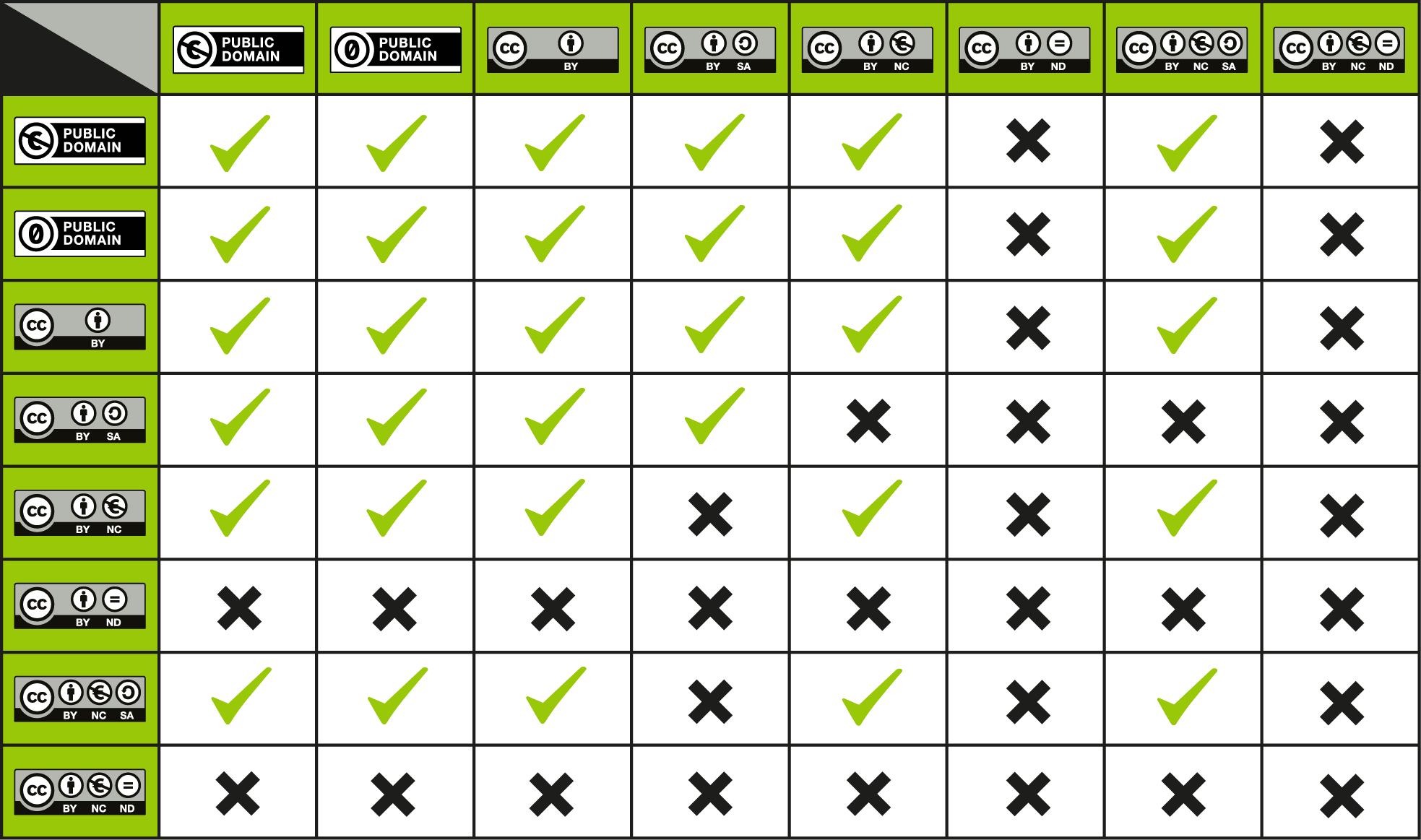Want a more in-depth look at copyright, or learn if something falls under fair use or not? Check out our guide on Scholarly Communication!
Searching and locating OER can be straightforward process; but that does not guarantee that you will be able to use the first resource found, as not all OER are suitable.
Remember: your Liaison Librarian is available to help with both finding and evaluating OER.
Video created by Abbey Elder (Iowa State University) and is licensed by CC BY 4.0
Using the advanced search tool(s) provided by certain search engines like Google and Bing allow you to specifically search within different levels of usage rights and copyright. Tools like these may make the searching easier but the guarantee of quality OER still needs to be closely examined by your chosen standards.
Additional sites with OER resources are listed below.
The free availability of OER is a major selling point for students and faculty alike, but simply because a resource is listed as an OER does not mean it is a quality resource. Like any other course material, the quality needs to be determined before use and due to the fundamental nature of the objects there is no universal standard to evaluate OER. Ultimately, the decision is up to the person selecting the resource.
Below are links to some OER evaluating standards and criteria that may be helpful.
Creative Commons (CC) are a set of licenses meant to encourage the sharing of information and resources. Depending on the license used, this means that a work may be available for simply sharing and reading for free, or it could be edited, altered, remixed, or otherwise changed freely. Almost all Creative Commons licenses require credit given to the original creator.
The chart below details which CC licenses are applicable for OER materials, and which are not:

The more detailed chart below shows which CC-licensed material can be remixed (green check marks).

Licensed by CC BY 4.0 International
You can find more information about each CC license at the Creative Commons site.
